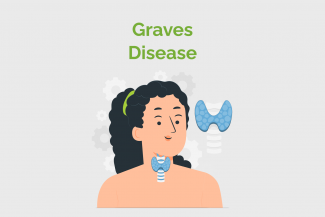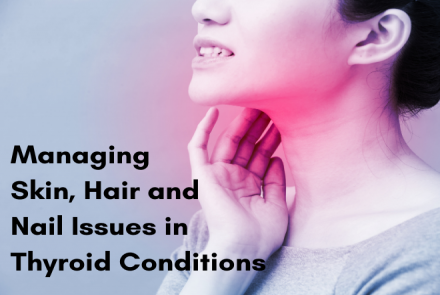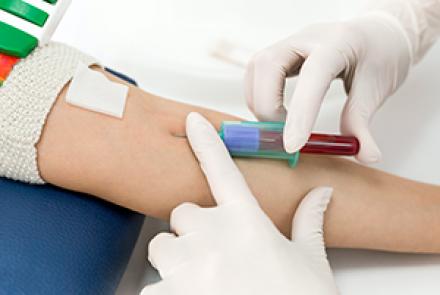
The diagnosis of Graves' disease may include:
Physical examination: Your doctor examines your eyes to see if they're irritated or protruding and looks to see if your thyroid gland is enlarged. Because Graves' disease increases your metabolism, your doctor will check your pulse and blood pressure and look for signs of tremor.
Blood sample: Your doctor will order blood tests to determine your levels of thyroid-stimulating hormone (TSH), the pituitary hormone that normally stimulates the thyroid gland, as well as levels of thyroid hormones. People with Graves' disease usually have lower than normal levels of TSH and higher levels of thyroid hormones. Another laboratory test measures the levels of the immunoglobulins (autoantibodies) known to cause Graves' disease. This test usually isn't necessary to make a diagnosis, but a negative result might indicate another cause for hyperthyroidism.
Radioactive iodine uptake: Your body needs iodine to make thyroid hormones. By giving you a small amount of radioactive iodine and later measuring the amount of it in your thyroid gland with a specialised scanning camera, your doctor can determine the rate at which your thyroid gland takes up iodine. The amount of radioactive iodine taken up by the thyroid gland helps determine if Graves' disease or another condition is the cause of the hyperthyroidism. This test may be combined with a radioactive iodine scan to show a visual image of the uptake pattern.
Ultrasound: Ultrasound uses high-frequency sound waves to produce images of structures inside the body. Ultrasound can show if the thyroid gland is enlarged, and is most useful in people who can't undergo radioactive iodine uptake, such as pregnant women.
Imaging tests: If the diagnosis of Graves' ophthalmopathy isn't clear from a clinical assessment, your doctor may order an imaging test, such as CT scan, MRI or ultrasound of the eye.

















